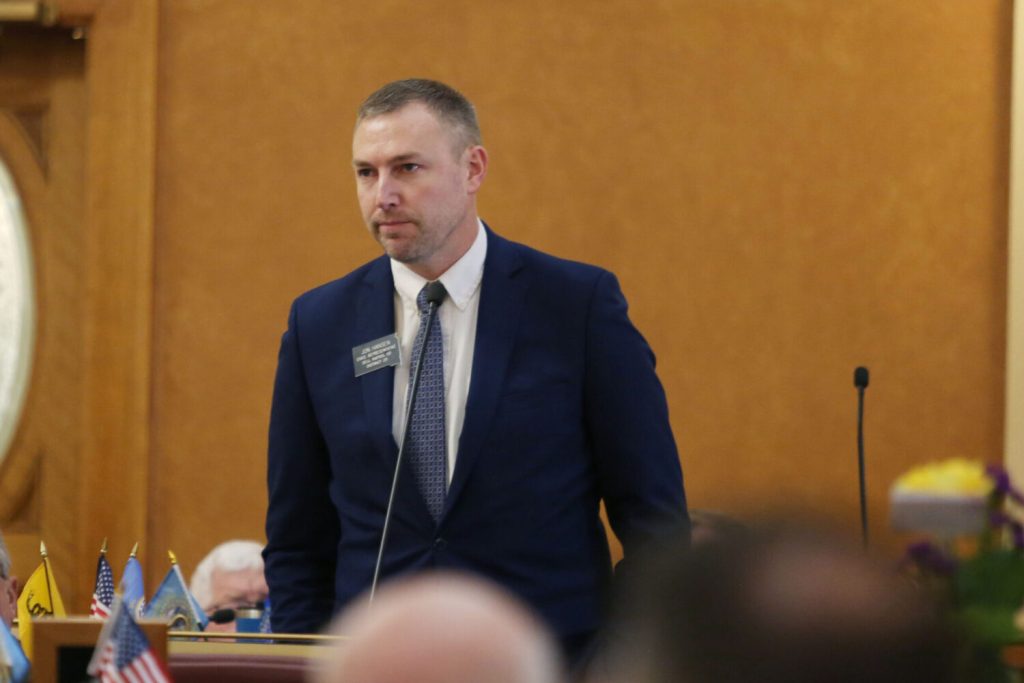
UNDATED – The state of South Dakota cannot enforce a new law that would shorten the window for circulating ballot question petitions by three months, a judge has ruled.
U.S. District Judge Camela Theeler filed a written order Friday that says the law is a violation of First Amendment rights. As a limitation on political speech, she wrote, moving the election-year deadline from May to February “arguably goes beyond merely inconvenient and enters the realm of severe.”
The filing deadline dictates the amount of time petitioners have to gather the required number of signatures to put a statewide question on the ballot. Petitioners need 17,508 signatures from registered voters to propose a law, which is known as an initiative, or to put a bill passed by legislators on hold so voters can consider it, which is known as a referendum. The number of signatures required to put a state constitutional amendment on the ballot is 35,017.
A ballot question committee that has worked on numerous campaigns, Dakotans for Health, filed the lawsuit in April after the Legislature and Republican Gov. Larry Rhoden approved the shorter deadline in March. Dakotans for Health’s leader, Rick Weiland, praised the judge’s decision Tuesday in a news release.
“Once again, our state’s Republican supermajority tried to rig the rules to keep everyday South Dakotans from having a voice in their own government,” Weiland said. “And once again, a court sent them packing.”
The law shortening the deadline started as legislation from state House Speaker Jon Hansen, R-Dell Rapids, who is one of several candidates for governor next year.
In a statement to South Dakota Searchlight via text message Tuesday, Hansen said Theeler “got this wrong,” and he called her a “Biden appointed federal judge.” While Theeler was appointed during the Democratic presidency of Joe Biden, she was confirmed 90-4 by the U.S. Senate, with yes votes from South Dakota’s Republican U.S. senators John Thune and Mike Rounds.
Hansen said elected legislators should have the authority to set petition submission deadlines, not unelected federal judges.
“This law is a reasonable step to safeguard our process and ensure the validity of petition signatures,” Hansen said.
He also referenced last year’s fight over an abortion-rights ballot question sponsored by Dakotans for Health, which Hansen opposed in his role as a leader of the Life Defense Fund. That group’s lawsuit challenging the validity of petition signatures was not resolved prior to Election Day, and Hansen has repeatedly cited that example as a reason why an earlier deadline is needed to allow more time for legal challenges. The lawsuit against the abortion measure was dismissed after voters rejected the ballot question.
The state Attorney General’s Office — which defended the state in the petition-deadline litigation — did not immediately respond Tuesday to South Dakota Searchlight’s questions. If the state chooses to appeal the ruling, its deadline to file an appeal is Sept. 29.
The legal battle is part of a broader struggle between ballot petitioners and Republican legislators over citizen lawmaking. During this year’s legislative session, for example, Hansen also prime-sponsored a successful bill adding justifications for the secretary of state to reject petition signatures. He cosponsored a bill vetoed by the governor that would have required constitutional amendment petitions to have signatures from registered voters in each of the 35 state Senate districts. Existing law allows signatures to come from registered voters anywhere in the state.
Those and other Republican-led efforts to restrict citizen ballot questions in South Dakota have come in response to the passage of ballot measures that many Republican lawmakers opposed. Examples have included ballot questions that raised the minimum wage, expanded Medicaid eligibility and legalized medical marijuana.
EDITOR’S NOTE: This story has been updated since its original publication with the addition of a response from state House Speaker Jon Hansen.


